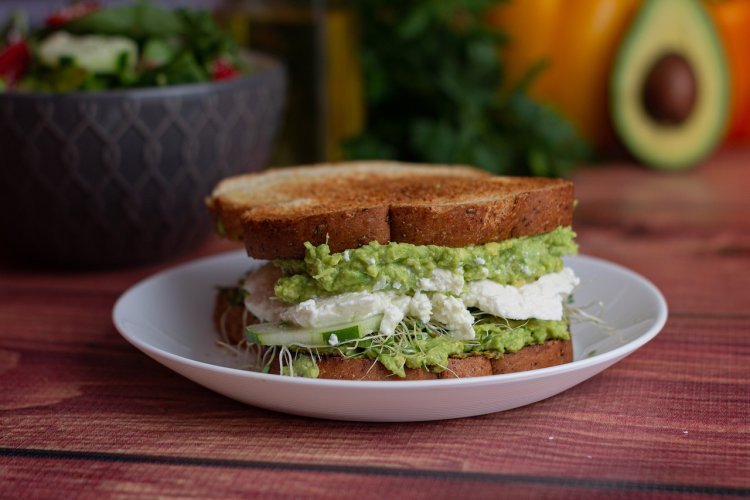Why Now is the Perfect Time for Vegan Travel

A strict vegan diet no longer poses the significant travel obstacle it once did, as an increasing number of tour companies are now offering environmentally friendly and ethical itineraries specifically designed for vegan travelers.
Fredessa Jaudon believes it was fate that led her to discover her favorite travel company. In 2016, while visiting the Sunflower Vegetarian Restaurant in Falls Church, Virginia, she parked behind a car with a bumper sticker advertising "vegan adventure tours" and was instantly intrigued.
As a long-time vegan who often struggled to find satisfying meals while traveling, she noted the company name and quickly found out that VegVoyages – now known as Vegan Travel Asia – addressed the exact problem she faced by organizing vegan group trips across Asia. She booked a tour to Thailand in October 2017 and has been hooked ever since.
“Due to my love for travel, I was well aware of the challenges that come with being vegan on the road,” Jaudon said. “Traveling with Vegan Travel Asia eliminates the guesswork about where and what I can eat according to my lifestyle.”
What Vegan Travel Looks Like
Instead of worrying about her next meal, Jaudon spent her Thailand trip enjoying delicious curries and learning vegan recipes in a cooking class with Thai chef May Kaidee. Since then, she has traveled to Indonesia, Sri Lanka, and India with the same company. However, Jaudon notes that vegan travel is about more than just diet.
During her travels around Asia, Jaudon has participated in various community projects, such as volunteering with an animal rescue organization in Rajasthan, releasing sea turtle hatchlings in Bali, and helping clean beaches in Sri Lanka. She plans to visit Laos and Cambodia with Vegan Travel Asia later this year.

An Expanding Market
Although vegans and vegetarians are still a global minority, their numbers are increasing as these diets become more mainstream. One study estimated that the vegan food market will reach $65.4 billion by 2030, up from $26.83 billion in 2021.
As the popularity of veganism and related lifestyle choices grows, so does its impact on the travel industry. More travel companies, hotels, and destinations are catering to those seeking plant-based meals and are expanding beyond dietary needs to include ethical activities and a focus on local vegan food traditions.
Tour operator Intrepid Travel began offering vegan food adventures in 2018 and announced in 2022 that all their food trips would include at least one plant-based experience. For example, as part of their South Korea Food Adventure, travelers stay overnight in a monastery in Gyeongju, sampling traditional Buddhist plant-based dishes such as lettuce stalk kimchi, ash pepper pancakes with chili paste, and rice wrapped in lotus leaves.
Responsible Travel, another tour operator with a focus on ethical practices, also promotes vegan and vegetarian holidays. Some of their trips include vegan food on request, while others, such as a 6-day vegan holiday in Greece, feature cooking classes and foraging for seasonal and wild foods.
“Twenty years ago, there was one [vegan] tour operator,” said Donna Zeigfinger, owner of Green Earth Travel, a long-established vegan and eco-travel agency, and co-founder of a vegan travel summit. “Now there are at least ten or more. I spoke with someone yesterday who is starting vegan tours in Iceland, which to me is surprising because it has been one of the hardest places for vegans.”
Zeigfinger founded her US-based travel agency in 1997 to address a significant gap in the travel market. Green Earth Travel creates customized itineraries for vegan and vegetarian vacations, collaborates with vegan operators on trips, and arranges vegan-friendly packaged tours.

Promoting Ethical Travel
The shift towards vegan-friendly travel has been driven in part by travelers seeking ethical experiences. A 2020 GlobalData survey found that 76% of over 5,700 global respondents were influenced by the ethical, environmentally friendly, or socially responsible nature of a product or service.
As recently as 2019, only 46% of respondents said they actively purchased products that were better for the environment or animal-friendly. This suggests a shift in consumer perceptions during the pandemic, with a growing number of people making eco-friendly choices. For many, these ethical choices start with what they eat, given the significant environmental impact of meat production.
Donna Zeigfinger, a vegan for nearly 40 years, recalls traveling to Spain in 2000 and struggling to find anything to eat. During visits to Germany in the mid-1980s, she resorted to Chinese restaurants as they were the only places offering vegan options. Now, she says, there is a vegan option in most restaurants. The perception of vegan travelers has also changed. “They are not just granola travelers,” she said. “They are your average travelers from all walks of life.”
Zeigfinger started her business to help her clients “not starve to death while on vacation.” Now, she also aims to educate people about vegan and animal cruelty-free travel, ensuring hotels do not use feather pillows or toiletries tested on animals and advising travelers to avoid zoos. Zeigfinger is working with various organizations to launch a Vegan Travel Association by next year.
